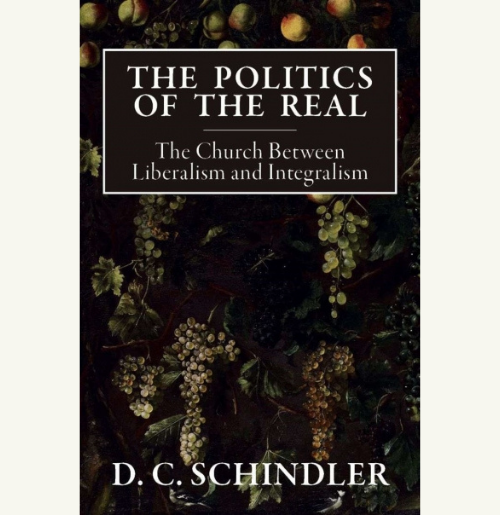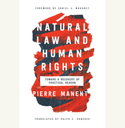Plato argued that man’s intellect can liberate him from the unreality of the cave; St. Athanasius, that true religion can liberate him from idolatry, that is, from man calling the unreal, real. In The Politics of the Real, D.C. Schindler joins this tradition, identifying our particular cave and our most cherished idol as liberalism. For Schindler, liberalism is simultaneously a potent philosophical error and a historical event in which the goods of the Christian social order are replaced with nearly identical substitutes, the “shadows on the wall.” The first and most radical response to liberalism, according to Schindler, is to understand it. We cannot find our way out of the cave without first realizing the delusions (“shadows”) we believe in—and the reality they imitate. Below I explore Schindler’s examination of the forms of reality which our current social order propagates, such as those concerning our conception of God, the legal apparatus, and participation in the Church.
Schindler asserts that the reality mimicked by the delusions (“shadows”) is the Church. The Church which ordered the Western world in history has been co-opted by the liberal hegemony. Christianity is not an invisible abstraction, but a “form, a concrete and visible reality in the world with an infinite depth and transcendent meaning,” which synthesized the Jewish, Greek, and Roman traditions into a coherent world. The Church is a res publica. This is precisely what liberalism rejects when it extracts man from his tradition and culture (i.e., the Church) and plants him in the imaginary a-social and abstract state of nature. Instead of being thrown into culture, which deepens and realizes human nature, the liberal subject imagines itself as coming from a blank slate indifferent to it. Here, Christianity need not have ever happened.
This belittling of the reality of Christianity begins by belittling God. Theologians from Anselm to William of Ockham de-emphasized God’s essence as potentia ordinata, meaning power “actualized in a particular way.” Instead, they emphasized God’s potentia absoluta, an absolute power regarding all logical possibilities. God is no longer Pure Act, who reveals Himself uniquely in Jesus Christ. Instead, He is Pure Power, that is, infinite capacity to be actualized in this or that, or any other way. What liberals would come to call “Nature’s God” is a de-actualized form of the Christian God, his essence abstracted from his recognized goodness, from his actual, creative activity to which the Church had always responded in worship. God, himself, becomes the ultimate blank slate within a world of blank slates; the One with the most abstract power who creates beings in his image. This shift reflects liberalism’s metaphysical reorientation implemented at all levels within the cosmic order: the prioritization of potency over act. By prioritizing potency over act, having abstract power (i.e., money or legal rights) is prioritized over the actual use of power for the good, allowing a society to build a false reality. This commences the politics of the unreal.
The Church and the state are not two separated spheres of power, concerned with separate ends. Rather, the temporal and the spiritual powers are both within the Church, though in different ways, using different means for moving humanity towards virtue and salvation, material and spiritual means, respectively.
By exchanging God as he actually reveals himself in history for the God of infinite potency, man re-conceptualizes the Creator’s presence as potentially open to a plurality of revelations: he is not limited to his actual revelation, in Jesus Christ. Enlightenment thinkers like Thomas Jefferson utilized this new emphasis to avoid religious violence, conjuring an abstract Being who could be worshiped in different ways, precisely because his revelation as the God of Jesus Christ was no longer a complete act, but rather, merely a particular revelation among an infinity of possible revelations–—this latter surplus of power being “God.” This places an inordinate amount of arbitrary power at the disposal of the temporal ruler, since he no longer mediates the authority of God. He wields power tyrannically. He may now control which revelation is acceptable, and in what manner, like the puppet handlers who govern the imitations on the wall of the cave.
Schindler would say that Christianity is now offered in a perverted form. A Christianity that is an “option,” even if it is the correct option, is not Christianity. The real Church is a res publica embodying an actuality established in the real order of history: God acts in this manner and we cannot but worship Him accordingly. As the images in the cave are a convenient imitation of the real world, the privatized Church is a cheap version of its actual form.
As with God, so with God’s image: Schindler argues that the abstract notion of God is mirrored in the liberal order’s abstract man. Just as God is no longer the God of Jesus Christ, but absolute Power, man is no longer the one whose proper end is eternal happiness with Christ. He is an abstract power that may decide his end. This is nothing more than a ban on goodness as such; for goodness is not an option among options. Goodness is what already moves the will, already presses upon the person and entices him to act. According to St. Thomas, “Nothing can be reduced from potentiality to actuality, except by something in the state of actuality.” This means that, for man, an actual good must always precede his choice of the good. Man cannot choose to participate in the common good unless it already exists. Only an actual good invites our participatory assent to it. In contrast, an arbitrary willful act does not presuppose an invitation of an actual good. When Schindler argues that the “actual reality of the common good is the source of political authority,” he argues that authority is distinguished from mere power, since it responds to, protects, promotes, and is otherwise justified by the actual common good which precedes it. Where this actual good is denied, and humanity is redescribed as seeking its own individual ends amidst various options, authority is degraded into tyranny: What justifies a ruling power in promoting and protecting this (optional) good versus another? The will of man, not the gift of God, becomes the justification for political rule.
Liberalism’s tyranny is covertly perpetuated in what Schindler calls “unnatural rights.” A true right is “a social extension of a natural power,” a demand for what is due to a particular being, embedded in a particular social order, according to his particular created capacities. An unnatural right, by contrast, precedes the political body. Like many scholars, Schindler locates the beginning of this tradition in Ockham, who asserted the existence of ius poli, a pre-political right granting protection against the pope and monarch. Ius poli is a right disconnected from an embedded nature. It is therefore empty of reality because it derives from an imaginary condition of man which purportedly existed prior to social relations.
This creates a condition of codependency between the state and the rights bearer. Since unnatural rights lack reality, they must be coercively enforced through the state apparatus. Simultaneously, the state’s existence results from the social contract, with the sole purpose of protecting such rights. To continue to grant rights, it must perpetuate the artificial reality in which social actors exist. Due to the state’s and rights bearers’ codependency, this process continues without obstruction, and the political order grows further detached from reality. Current modern discourse of “natural” rights resembles how discussions would take place amongst the prisoners within the cave in which desire to understand being is altogether lacking. Without an inclination to understand what a right is or from where one derives, most claim protection without thought. Individuals claim arbitrary rights to kill unborn children, redefine marriage, and change their “sex” because the sovereign author of our artificial reality lacks the mandate to obstruct our assertions; indeed, it has the mandate to promote such claims. This is the consequence of power wielded by liars and fools.
The ideal political order serves the whole common good. For Schindler, this entails the recognition of a transcendent order which encompasses and extends beyond the temporal horizon. In De Regno, St. Thomas claims that man is never in a state of nature in which he has no reference to anything beyond himself. Even if living alone, “each man would be a king unto himself, under God, the highest King, inasmuch as he would direct himself in his acts by the light of reason given him from on high.” What this means for authority and law is that it has a fundamentally positive role, namely, to direct the polity towards the transcendent good. Just as the soul gathers up parts of the body and gives life in relation to an end that transcends the body, so does the governing entity for the community, holding it together and guiding it towards its transcendent end. For a polity seeking salvation, only the Church, in its laity and its clergy, can efficaciously fill this role.
However, even if the Church’s power is publicly recognized, it cannot be entrapped within the liberal order. If so, it will be barred from its actual form and unable to generously bear witness to the truth. This is Schindler’s central claim against integralism, which reduces the Church to a competing sovereign, acting through coercion rather than in and through social conversion. According to Schindler, the Church and the state are not two separated spheres of power, concerned with separate ends. Rather, the temporal and the spiritual powers are both within the Church, though in different ways, using different means for moving humanity towards virtue and salvation, material and spiritual means, respectively. A friendship between these two, ecclesial powers—signified, but not exhausted, in the distinction between the clergy and the laity—better describes the political ideal than any discussion of Church and state, in which “state” is presumed to mean something other than or extrinsic to the Church.
Plato’s philosopher-king embodies the ideal authoritative figure, as he escapes the shackles in the cave by receiving the truth of the good in contemplation and acts upon his understanding in generously giving it to those still entrapped in the cave. He rules by means of persuasion rather than coercion. Schindler seems to think that only when the Church is free to embody this publicly authoritative form will we achieve a “politics of the real,” one that looks to the whole human good and generously liberates people to pursue it.
The Politics of the Real is a brilliant addition to the postliberal movement. By understanding liberalism as a distortion of the Christian order, we can recognize it as a sustained war upon reality. And we can understand a true postliberalism as nothing more or less than the New Evangelization, the effort of converting entire social orders to Christianity.



